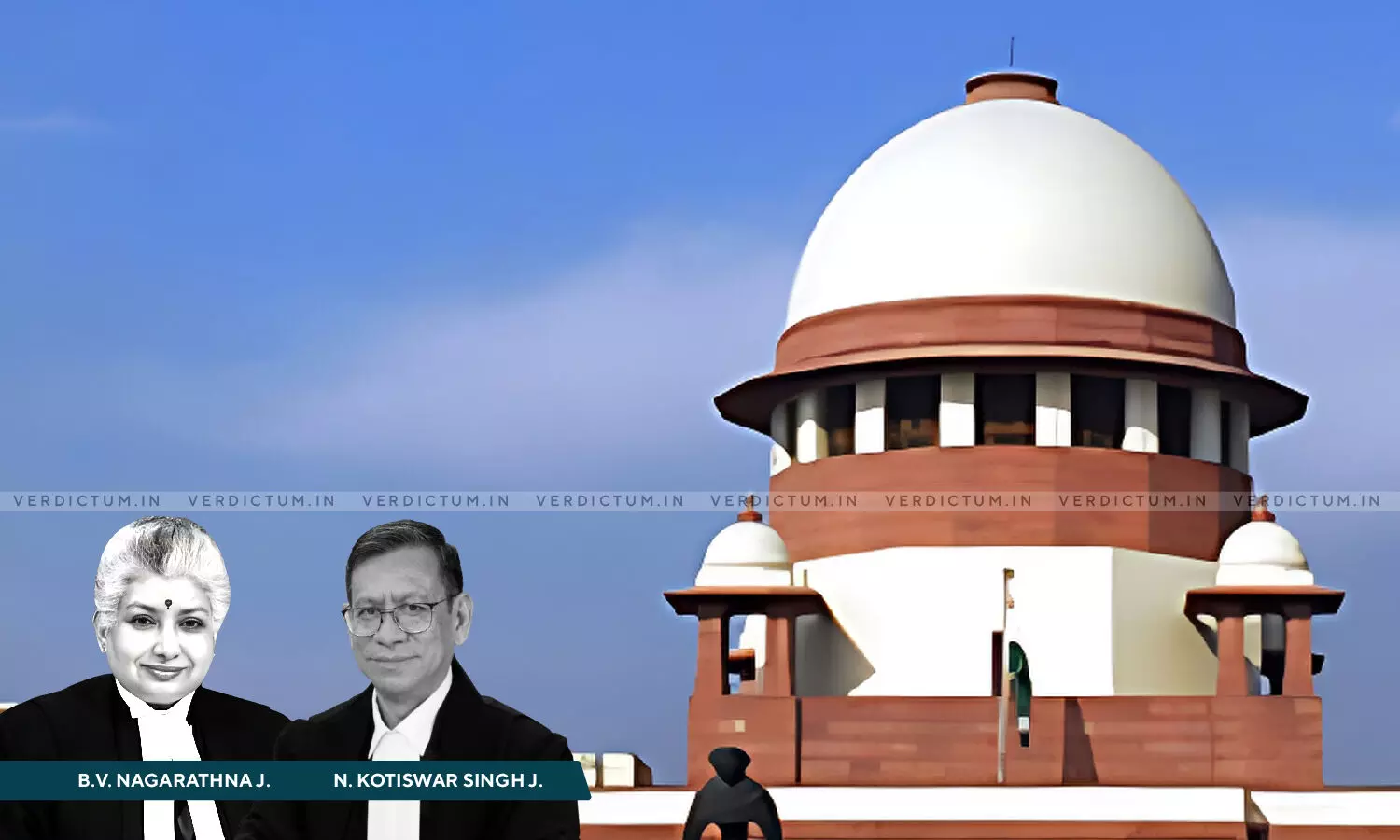
Longer Duration Of Physical Relationship Without Protest & Insistence On Marriage Indicates Consensual Relationship: SC Quashes Rape Case
 |
|The Supreme Court has held that the longer duration of a physical relationship between partners without protest and insistence by a female partner for marriage is indicative of a consensual relationship rather than a relationship based on a false promise of marriage by the male partner.
The Court quashed an FIR under Sections 376, 420, 504, and 506 of the IPC which alleged that the Appellant had engaged in a physical relationship with the complainant under a false promise of marriage. The Court held that the relationship between the parties was consensual and that no prima facie case was made out against the Appellant for the offence of rape.
The Bench of Justice B.V. Nagarathna and Justice Nongmeikapam Kotiswar Singh observed, “In our opinion, the longer the duration of the physical relationship between the partners without protest and insistence by the female partner for marriage would be indicative of a consensual relationship rather than a relationship based on false promise of marriage by the male partner and thus, based on misconception of fact.”
AOR Gunnam Venkateswara Rao represented the Appellant, while AOR Aaditya Aniruddha Pande appeared for the Respondents.
The complainant, a widow, alleged that she had entered into a relationship with the Appellant in 2008. As per the Prosecution, the Appellant had promised to marry her and later refused to fulfil the promise. The relationship continued for several years, during which time the Appellant allegedly supported the complainant financially.
In her FIR, the complainant alleged that the Appellant had sexual relations with her on the pretext of marriage. When he later refused to marry her and stopped providing financial assistance, the complainant filed an FIR alleging rape.
The Appellant argued that the relationship was consensual and that the complainant was fully aware that he was a married man. He further contended that the allegations were an afterthought, arising out of the Appellant’s decision to cease financial support.
The Supreme Court took note of the “worrying trend that consensual relationships going on for prolonged period, upon turning sour, have been sought to be criminalised by invoking criminal jurisprudence” and held that the allegations did not disclose ingredients constituting the offences alleged and that the continuation of criminal proceedings would amount to an abuse of the process of law.
“In our view if criminality is to be attached to such prolonged physical relationship at a very belated stage, it can lead to serious consequences. It will open the scope for imputing criminality to such long term relationships after turning sour, as such an allegation can be made even at a belated stage to drag a person in the juggernaut of stringent criminal process. There is always a danger of attributing criminal intent to an otherwise disturbed civil relationship of which the Court must also be mindful,” the Court observed.
The Bench noted that the discontinuance of financial support to the complainant, rather than the alleged resiling from the promise to marry by the Appellant appeared to be the triggering point for making the allegations after a long consensual relationship for about nine years.
“It will be very difficult to assume that the complainant who is otherwise a mature person with two grown up children, was unable to discover the deceitful behaviour of the appellant who continued to have sexual relationship with her for such a long period on the promise of marriage. Any such mendacious act of the appellant would have been exposed sooner without having to wait for nine years. The inference one can draw under the circumstances is that there was no such false promise made to the complainant by the appellant of marriage by continuing to have physical relationship so as to bring this act within the province of Section 376 IPC and therefore, there was no vitiation of consent under misconception of fact,” the Court remarked.
Consequently, the Court held, “In our opinion, allowing the criminal proceeding against the appellant in the facts and circumstances to continue, where no criminal liability can be attached, would amount to abuse of the process of court. Therefore, under the circumstances, we are satisfied that the appellant is entitled to the relief claimed for quashing the complaint/ FIR.”
Accordingly, the Supreme Court allowed the Appeal.
Cause Title: Mahesh Damu Khare v. The State Of Maharashtra & Anr. (Neutral Citation: 2024 INSC 897)
Appearance:
Appellant: AOR Gunnam Venkateswara Rao; Advocates Mrunal Dattatraya Buva and Dhairyashil Salunkhe
Respondents: AOR Aaditya Aniruddha Pande